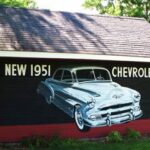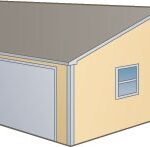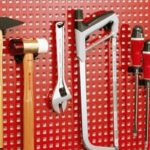This buying guide will help you choose the right garage floor finish for your home. Learn about the different types of garage floor finishes, their benefits and drawbacks, and how to choose the right one for your needs.
Painting a garage floor can transform the garage. Bare concrete shows oil stains, dirt, dust, and more. A painted floor, on the other hand, can repel stains, add color and style, and make clean up a breeze.
Liquid garage floor finishes are easily applied to a garage floor with a simple paint roller or paintbrush, straight from the can. They bond to the concrete surface while filling small cracks and open pores, creating a smooth surface that makes sweeping or mopping up less of a chore and finding dropped items less of a challenge. You can buy concrete sealers, surface paints, and epoxy.
Concrete Sealers & Paints
Concrete sealers are usually clear acrylic or polyurethane. Floor paints may be oil-based, modified acrylic, or water (latex) based. A minimum of two coats is required to ensure coverage, but, because raw concrete is porous and tends to suck up finishes, especially first coats, you may need to buy and apply more.
Surface finishes on concrete are problematic. They look great at first, but both paints and sealers wear off over time, and they wear unevenly. They also can be very slippery when wet. Sand may be sprinkled onto a wet finish to offset this, but it will wear away before long.
Another big problem with most floor paint is that a car’s hot tires will lift it right off the floor, no matter how well the paint is applied (or what the paint manufacturer claims). Solvents also attack most types of paint, and in a garage much of what is spilled usually contains some type of solvent.
If your garage floor has a water problem—that is, if water seeps up through cracks or mysteriously appears under items left lying around—surface finishes are probably not a good option for you. The hydrostatic pressure that forces underground water up through the floor will also prevent the finish from adhering.
Epoxy for Garage Floors
If you can imagine a paint for your garage floor that bonds like it’s welded to the surface; resists oils, acids, and just about anything else spilled on it; always looks like new and never wears off, you’re probably thinking of epoxy garage floor paint. These finishes have been around for years, but epoxy is notoriously difficult to mix and apply, so in the past you were better off hiring a pro to do it.
Today, there are do-it-yourself epoxy floor finish kits that are much easier to work with, and they offer an affordable alternative to lower-cost floor paints and expensive tiles.
You can buy single-part epoxies or two-part epoxies: With the latter, you still have to mix in a catalyst and work quickly to prevent the material from drying before you complete the job, but the process is more forgiving and the results are just as professional looking.
Epoxy floor finish kits include plastic grit particles that are sprinkled onto the wet finish to prevent slipperiness. These particles generally last longer and perform better (and look more attractive) than sand additives. As with paints and sealers, preparation of the concrete floor is all important to ensure a permanent finish.
Garage Floor Grids & Mats
Want to completely transform the look and functionality of your garage? A variety of garage flooring products are made for placing on top of the concrete slab to make the surface more comfortable, functional, and attractive. These tend to be either grid/tile systems or mats. For information on paints and finishes, please see Garage Floor Paints & Finishes.
Garage Floor Grids & Tiles
For a showroom-finish garage floor, vinyl and aluminum garage floor tile systems are available. Most of these tiles link or snap together, so they’re easy to install, allowing you to create patterns using different colors or rearrange or remove them altogether as you wish.
Tile systems are expensive, particularly those made of aluminum, but they create a more resilient, and certainly more attractive, floor underfoot than bare concrete, and as a result they are favored by car hobbyists and anyone else who spends considerable amounts of time in the garage.
Tiles come in several varieties. Some are solid surfaced while others have an open, lattice-like pattern. Most are 3/8- to 1/2-inch thick. Contrasting or matching beveled edge strips provide a finished look. The top-of-the-line aluminum tiles are typically metal laminated to a plastic base.
Vinyl Mats for Garage Floors
The latest in garage floor finishing is roll-out vinyl garage floor mats. Much like the resilient flooring used in kitchens, the mats are available in 8-foot-wide rolls up to 36 feet in length.
Three 8-by-24-foot rolls will cover a typical double (two bay) garage floor. According to Gladiator Garage Works, which introduced this product in 2007, once the mats are installed they will not creep, tear or wrinkle in normal use, even under the weight of automobiles.
There is always the possibility that water can become trapped beneath the mat, or that insects will take up residence underneath it. Edges, especially those facing the garage doors, also could be vulnerable to curling and casual damage.
Gladiator claims that a bead of silicone applied under the edges prevents the mats from lifting and keeps water from seeping in.
NEXT SEE:



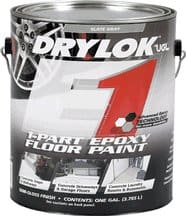
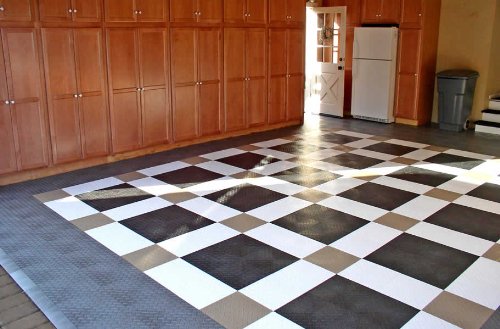
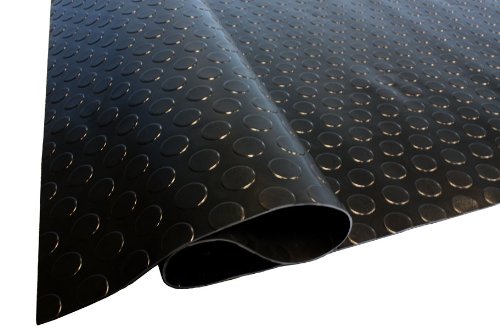
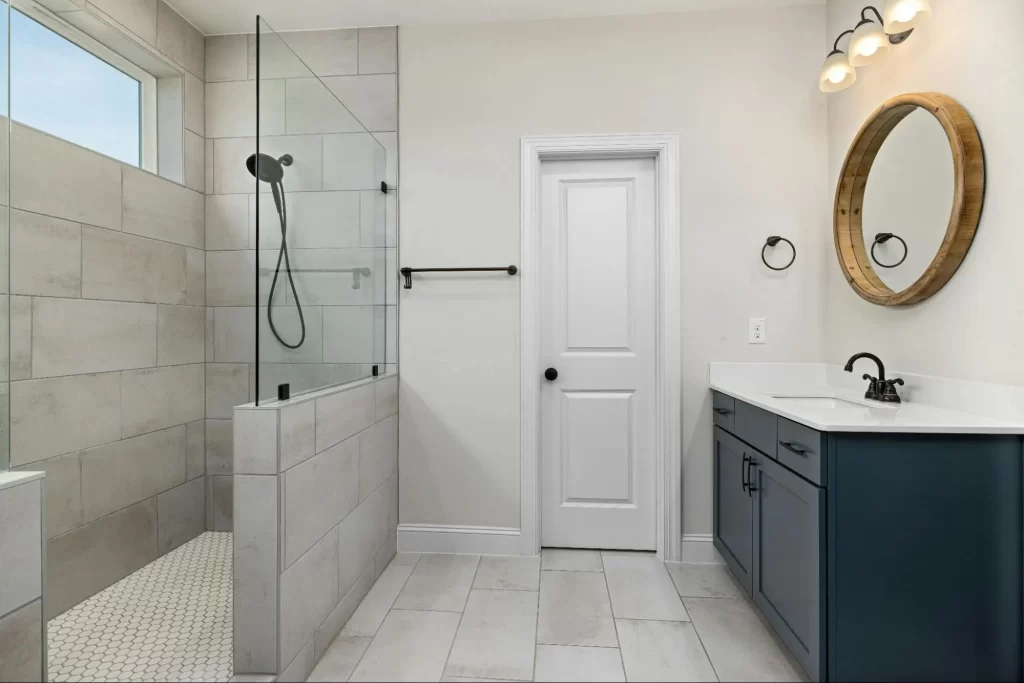
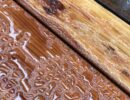
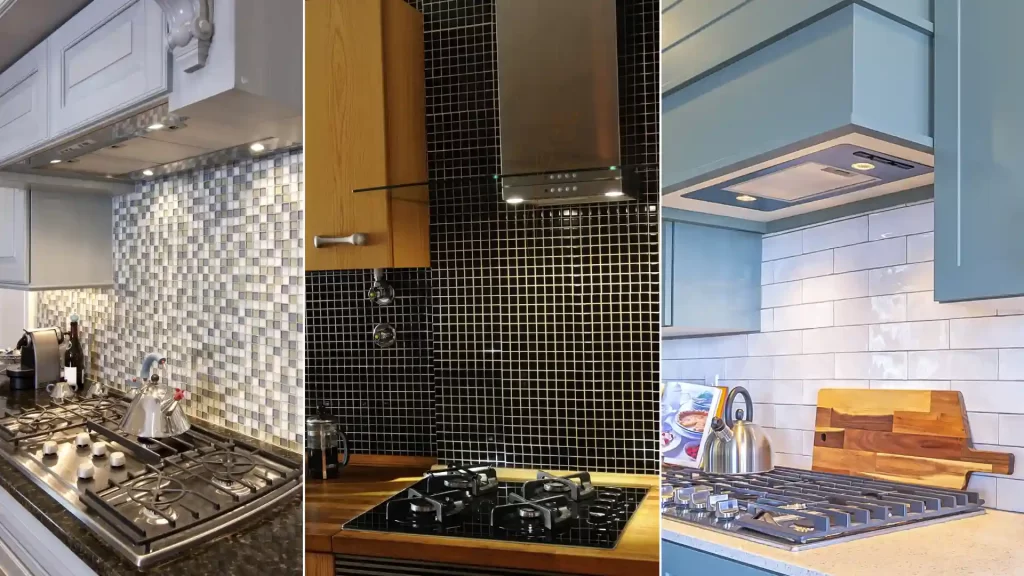
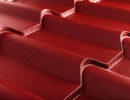
 Don Vandervort writes or edits every article at HomeTips. Don has:
Don Vandervort writes or edits every article at HomeTips. Don has:
